| |
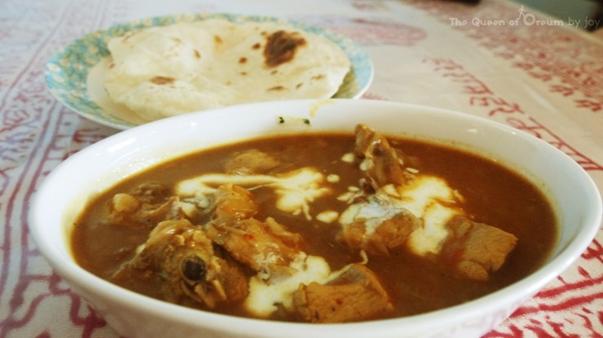 |
|
| ▲ The home-made style chicken curry. Photo courtesy Curry Wala |
Jeju is slowly becoming a bit of a curry mecca. Local Indian cuisine was long cornered by Bagdad Cafe in City Hall but then Raj Mahal, Shin Jeju, took a bite out of the market and now Curry Wala, Gwakji, has been added to complete a spicy troika.
Much as Jeju has diversified its food culture, Gwakji has also internationalized its eateries a great deal recently. Curry Wala adds to fish and chips at Taehee Cafe and French food will be on offer at soon-to-open Le pirate.
Curry Wala itself has received favorable reviews from the local community. American Sachin Mahajan claims it provides “the closest I've had to mom's cooking since I came to Korea.” This was, in fact, the stated goal of Tibetan-born Dawa when opening the restaurant.
| |
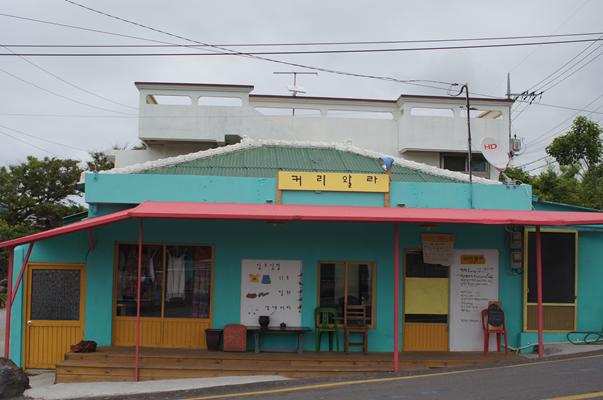 |
|
| ▲ Curry Wala is in a traditional structure at Gwakji Sageori (junction). Photo courtesy Curry Wala |
“I wanted to provide real Indian home cooking. I will provide more food in the future and eventually I want to serve Tibetan food, but the ingredients are very hard to find,” he said.
Curry Wala is situated in Gwakji, Aewol-eup, just a hundred or so meters from the beach. The restaurant currently offers a simple set meal of chicken curry, chai tea and chapati for 10,000 won. Makgeolli shakes and lassi are also available for 5,000 won each.
The business is housed within a small traditional-style structure on Gwakji 3-gil, Gwakji Sageori. The quaint low-ceiling building includes the dining area to the right and an arts and crafts boutique to the left. Around 12-15 can be seated inside.
| |
 |
|
| ▲ The set meal with chapati, curry and rice (chai not pictured). Photo courtesy Curry Wala |
Dawa, who lived for six years in India, says he is one of just six Tibetans in Korea - “I have met them all” - and the only in Jeju. He has clearly settled in well to local life - he has taken Korean citizenship - and while not working in the restaurant, he works as a carpenter and fishes in the local seas.
“I made all of the tables and chairs in here...After I arrived I was lucky to find a job as a carpenter, but I’d never done it before...I had to learn it all on the job,” he said. The tables and chairs are a testament to his skills.
Curry Wala also doubles as an Indian cultural outlet - “We loved India so much we wanted to introduce the culture to people here,” said Ms. Kim - with Indian newspapers, clothing and other items sent over from India. “My sister still lives [there] and she sends me the clothing and other items,” she said.
| |
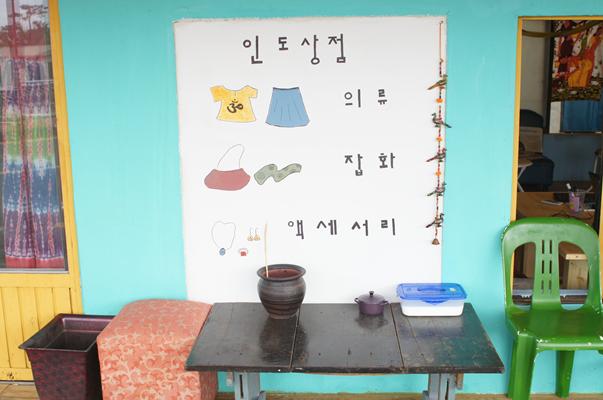 |
|
| ▲ The shop sells a number of Indian cultural items and clothes. Photo courtesy Curry Wala |
Dawa’s journey to Korea was a long one: he left Tibet at 19 years of age to learn about Tibetan culture - “We couldn’t learn anything about our own culture or religion in Lhasa,” he said. After arriving in Nepal - en route to India - he saw the Tibetan flag for the first time in his life.
“It was like meeting a long lost parent - I was so sad,” he said, visibly moved by the memory.
Dawa then settled in Dharamsala, alongside many in the Tibetan refugee community. It was there he was able to learn about his own country, free from the restrictions of the Chinese state.
| |
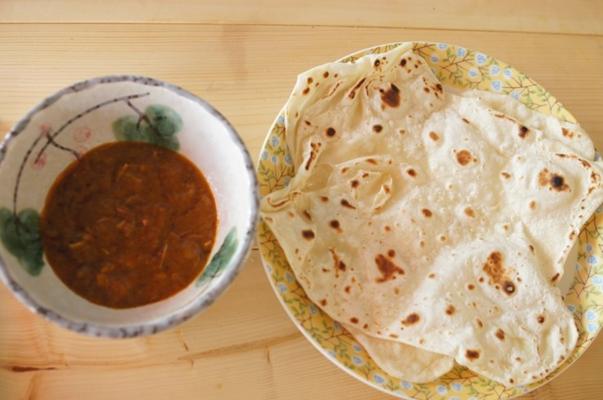 |
|
| ▲ Naan and curry sauce. Photo courtesy Curry Wala |
“I met the Dalai Lama in Dharamsala. He said I should return to Tibet and tell them about India, what it is like and what I had seen. He said: “Don’t lie, just tell them exactly as it is.””
While in the Indian city - where 70 percent of the population is Tibetan - he learnt Indian cuisine. He also met his wife, a Korean working with a local NGO providing welfare services to the local Tibetan refugee population.
After six years they decided to move to Seoul together before relocating to Jeju this year. They want a slower pace of life.
| |
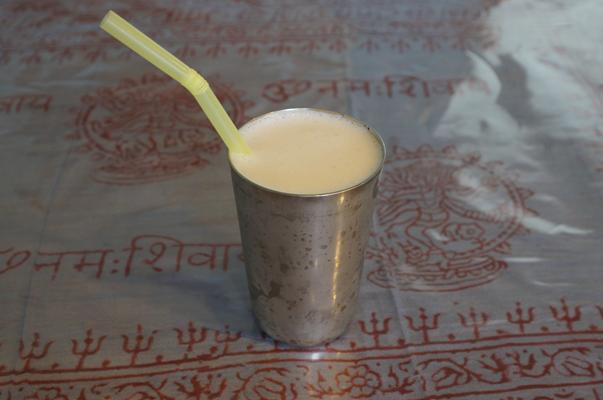 |
|
| ▲ The popular shake. Photo courtesy Curry Wala |
“Hongdae was so expensive we wanted somewhere more relaxed where we could set up a restaurant. We came down to Jeju and we found this place available,” Dawa’s wife, Kim Mina, said.
The journey could come come full circle as Dawa plans to return to India so his six-year-old daughter, Chenjom, can learn about her Tibetan heritage.
“I want her to learn the Tibetan language and religion in Dharamsala. It is the only place she can do so,” he said.
Dawa welcomes everyone among the Jeju community to visit his restaurant. He will also be offering a 40 percent discount on all makgeolli shakes and lassi to customers who print this article.
**Makgeolli shake or lassi for 3,000 won with this article (normally 5,000 won)**
Where: Gwakji Haesuyukjang Ibgu (beach entrance), Gwakji Sageori (junction).
Contact: 010-3356-8152
Web: jejucurrywala.blogspot.kr
View Eating and drinking across Jeju in a larger map
|

























